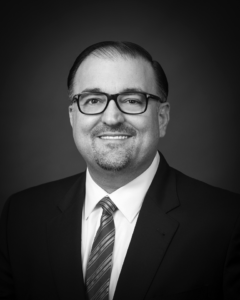June marks Immigrant Heritage Month (formerly Refugee Awareness Month), an opportunity to honor and celebrate the invaluable contributions of immigrants and their descendants, who bring forth innovation, diversity, and wide-ranging impacts that continue to shape and power California and our nation.
While the issue of immigration may have been thrust into the spotlight earlier this year with the termination of Title 42, our region has long been the first home for those who are looking for safe refuge and opportunities for their families in the U.S.
Currently, refugees and immigrants in San Diego make up around 25% of the population and are an integral part of our community. However, they are often underrepresented in the health care system and struggle to gain access to culturally relevant and linguistically appropriate care. This was evident in the 2022 San Diego Community Health Needs Assessment, which found that they often face barriers when it comes to seeking care.
From the report: “Refugee community members may also face cultural stigma when seeking mental health care. Receiving mental health treatment can feel traumatizing or invasive to their privacy when translators are used. Community members emphasized that building trust with mental health providers takes time. This is a challenge when most insurance coverage limits the number of appointments per year.”
But that stigma isn’t just felt when it comes to mental health. Also from the report: “Immigrants and refugees frequently perceive stigma from other community members because their communities are smaller, closer-knit, and information about others circulates on a regular basis. As a result, they are less likely to seek cancer screening or treatment because they are afraid of being judged by others.”
Language also poses a significant barrier to accessing care. Having a provider who speaks the patient’s language builds trust, understanding, and a comfortable environment to share any health concerns. Because many people who speak little to no English rely on family or friends for translation, this often limits patient-provider privacy, which could result in the patient not fully disclosing their concerns or needs.
The San Diego Refugee Communities Coalition, which has been on the front lines of providing essential services to low-income disenfranchised refugee families for years, identified similar significant barriers during a September 2020 survey. Major barriers that were mentioned included a confusing medical system, language, and difficulties related to insurance/co-pay. Physical and mental wellness, as well as access to health care, are foundations for the successful resettlement of refugees and other populations. As your hospitals continue to work to meet the needs of these community members, it is crucial to prioritize culturally competent care. This approach is vital to ensuring the overall health and well-being of immigrants and refugees in our region.

